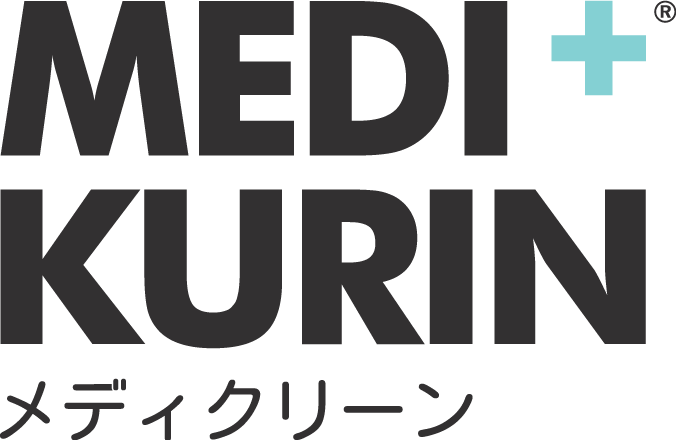Different compounds, different properties – time to clear up your misconceptions about HOCl and NaOCl (bleach).
MEDIKURIN’s Hypochlorous Acid (HOCl) may have similar chemical compounds to household bleach (common name of sodium hypochlorite, NaOCl), but that’s where the similarities end.
First and foremost, MEDIKURIN’s Hypochlorous Acid (HOCl) is produced from electrolyzed salt water using patented Japanese electrolyzed water technology. This means that our solution is made of the non-corrosive elements you get from the electrolysis of salt water, that is hydrogen (H), oxygen (O), and chlorine (Cl). Together, they form the active ingredient HOCl, a weak acid that is also naturally produced by our white blood cells to combat pathogens in our bodies.
In contrast, sodium hypochlorite (NaOCl) is the main ingredient in bleach that is formed from chlorine (Cl) and sodium hydroxide (NaOH). When combined, an instant reaction between the two forms a highly corrosive chemical that is not safe to be inhaled, applied to the skin or consumed by humans.
The difference between MEDIKURIN’s Hypochlorous Acid (HOCl) and household bleach
| MEDIKURIN’s Hypochlorous Acid | Bleach (Sodium Hypochlorite) | |
| How it’s made | Produced through the electrolysis of salt water | Produced through a chemical reaction between chlorine and sodium hydroxide |
| Chemical formula | HOCl | NaOCl |
| pH | pH 5-6 | pH 13 |
| Corrosiveness | Non-corrosive | Highly corrosive |
| Odor | Mild | Strong |
| Side effects | Non-toxic, non-irritating | Nausea, irritation to skin, eyes, or throat |
| Precautions | Safe if ingested in small amounts, safe for kids | Use in a well ventilated area, keep away from children |
To conclude
Rest assured that when using MEDIKURIN’s Hypochlorous Acid products, you will not be exposed to the same corrosive elements found in household bleach.
References
“Bleach.” How Products Are Made. MadeHow. Accessed July 7, 2020. http://www.madehow.com/Volume-2/Bleach.html.
“Sodium Hydroxide: Uses, Benefits, and Chemical Safety Facts.” ChemicalSafetyFacts.org, May 8, 2020. https://www.chemicalsafetyfacts.org/sodium-hydroxide/.
